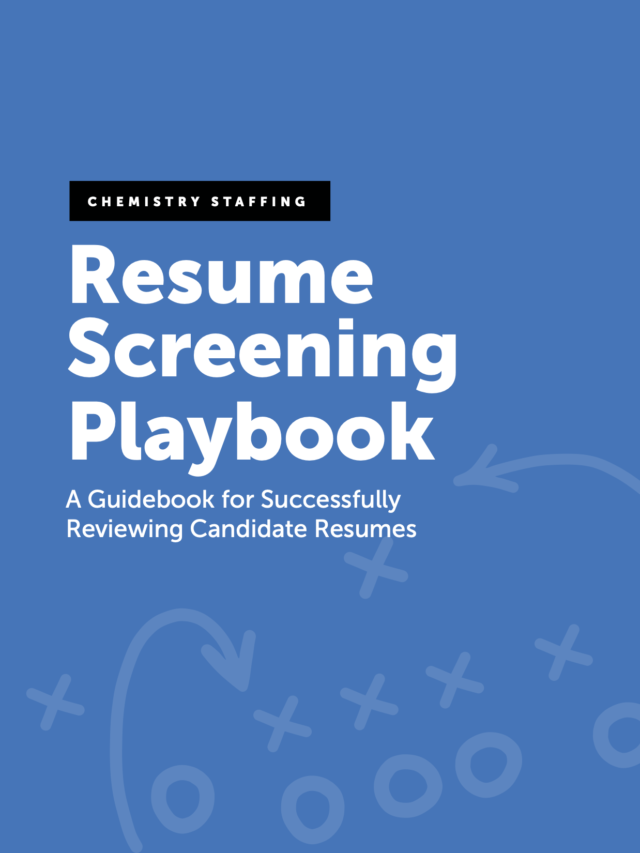
Scoring Resumes to Find the Top 5%
You’re going to be looking at a LOT of resumes. But what should you be looking for? And how do you determine which people might really be a great fit for your church. In this video, we’ll teach you how to identify red lights, yellow lights, and green lights, and how to ultimate sort resumes into a ‘yes’ pile and a ‘no’ pile.

Key Takeaways
Do you speed up when the traffic light turns yellow, or slow down? In this section, we talk A LOT about red, yellow, and green lights, and how identifying these for each candidate is vitally important to help you find your healthy, long-term fit. Here’s what you need to know:
We call these 'deal killers'.
These are the signals that you would NOT be a good fit at a particular church or ministry.
Green lights are usually the easiest to identify (and the most fun).
Think 'synergy'. Where do you and your potential next church agree?
The more you agree on, the better probability of a long-term fit.
Obviously, the more green lights, the better.
Yellow lights are a little harder to identify.
Yellow lights are not close-fisted issues. (Those will identify themselves as red or green lights pretty easily).
Yellow lights demand clarification.
Don't speed through the yellow lights. Use caution. Dig in a little deeper. Be more aware.
You will probably ask most of your interview questions on 'yellow light issues' trying to find clarity and the importance of key differences between your church and the candidate.
As you unpack the yellow lights, they can turn into green or red lights.
When there's a red light... stop the process. Back to the drawing board.
If it turns into a green light... you're good to pass go and collect $200.
But sometimes yellow lights stay yellow. And that's ok if both you and the candidate agree that it's ok.
There will ALWAYS be yellows.
When you start looking at a resume, start by looking for red lights. (Remember, when you find even one red light, move on).
Here are some resume sorting tips:
Spend some time looking at the most recent church that this person has served in; looking at their theological statement, watching parts of a worship service and a sermon or two. This will help you with theological and cultural alignment pieces. (Does this feel like us?)
Use the resume as a tool to dig into each of the five areas.
Work your way through the other churches on their resume.
Do the same for colleges/seminaries. Does what you find line up with compatibility with your church?
Our resume screening playbook will help you with this process. (You can find it in the "Additional Resources" section below
Remember, don't disqualify on yellow lights at this stage. But do on Red.
If you know there's a yellow flag, write it down as a discussion topic with the candidate later on.
Theologically. Even culturally.
Keep that in mind.
Their last church might not be where they've evolved to.
(In fact, they may be leaving their current church because THEY have changed).
Look for similarities and possible pivots.
Hold some of this loosely. Default to yellow when necessary. Remember, the yellow lights are things that you will want to ask about later to bring some clarity (and hopefully move the yellows to either red or green).
No, seriously.
Real money. And real time.
When you do the hard (and time-consuming) work of filtering resumes, you will save yourself much time, money, and potential heartache.
As soon as you talk with a candidate, you will begin to lose some of your objectivity if you're not careful.
In many cases, if you laugh at a candidate's joke, the game is over. If you're not careful, you will overlook yellow (and even red) lights because you like someone.
You're less prone to make this mistake if you do your homework and take your time evaluating their resume before talking with them.
Once you like someone, you're most probably looking for reasons TO hire them.
The person you like the most... the person you connect with the most personally, could be a terrible fit for your church theologically or culturally.
That's why this resume investigation stage is so important.
This process, as painful and as time-consuming as it can be, will give you the great questions you need to ask to further identify if a candidate has the potential for a healthy, long-term fit.
Take a shortcut here at your own peril. It will come back to bite you.
Everyone that has (even) one red light should go into the 'no' pile.
HINT: Your 'no' pile will be MUCH taller than your 'yes' pile if you're doing this correctly.
If you truly value candidates, you will communicate with each one.
It's a pain. It's easy to skip this step. 85% of churches don't communicate.
But do the right thing, especially for the 'nos' on your list. Craft a simple statement letting them know that they will not be moving forward in the process.
Believe it or not, most will thank you for the heads up. It provides clarity for them that this isn't God's next step in His plan for their life.
Additional Resources
Our resume screening playbook will help you identify the reds, yellows, and greens, and ultimately help you sort through and find the top candidates and prospects for your church’s opening. Use this as your guidebook, and feel free to ask us any questions in the section below on this page if you get stuck.
Ask Us Anything...
Sorting through your resume stack is a BIG DEAL. It’s also time-consuming, and at times, a little bit confusing. You’re the gatekeeper for each person that has applied. Should you take the time to interview them, or tell them no? It’s a weighty decision (times however many resumes you receive!). Have any questions? Ask away… we’ll be glad to offer some assistance during the phase of your search.
Your Presenters

Todd Rhoades

Matt Steen
Need help with Getting Started With Your Search Finding Candidates Identifying a Healthy Fit Discovering Your Non-Negotiables Scoring Resumes Making Great Decisions Interview Questions Compensation Packages Your Search Team On-Site Visits Video Interview Strategy Developing Your Benefits Package Onboarding Your New Staff Member ?
As part of the purchase price of this course, you also receive a free 30-minute consultation with one of our Church Coaches at Chemistry Staffing to help you in any area of your search. Need some help finding qualified candidates, sorting resumes, or developing your compensation and benefits package? We’re here to help and guide you in any area of your staff search.
